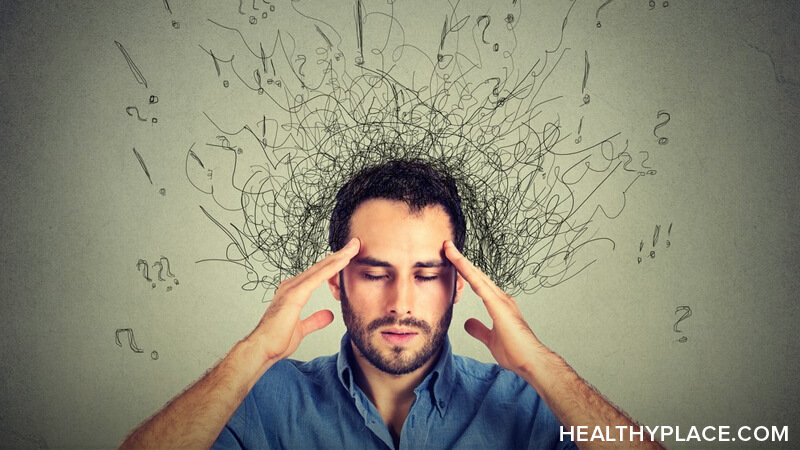Complete List of Schizophrenia Symptoms

This list of schizophrenia symptoms can provide insight into what schizophrenia is all about.
While knowing general schizophrenia signs and symptoms is helpful, the basic symptoms can be rather vague. For example, many people have heard of hallucinations and delusions, but what do these mean for someone living with them? To understand schizophrenia, and more importantly, the people behind it, it is important to know both the basic symptoms as well as the depth of them. A schizophrenia symptoms list can be a handy go-to tool to build that understanding.
List of Core Symptoms of Schizophrenia
The authority on all mental disorders is the American Psychiatric Association’s DSM-5. This encyclopedia of mental disorders presents all of the symptoms and features of schizophrenia (and all mental illnesses and personality disorders.) The DSM-5 lists these characteristic symptoms of schizophrenia:
- Delusions
- Hallucinations
- Disorganized speech
- Disorganized or catatonic behavior
- Negative symptoms
List of Schizophrenia Positive Symptoms
The first four on the above list are considered positive symptoms of schizophrenia because they are things that are added to the person’s experiences. With hallucinations, for example, he will have extra-sensory experiences, like hearing things that aren’t there. This list of schizophrenia positive symptoms shows what is involved for someone with schizophrenia:
- Seeing, hearing, smelling, feeling, or tasting things that aren’t real
- Beliefs that aren’t based in reality, also known as thought distortions
- Bizarre delusions, such as believing that someone has stolen her internal organs and replaced them with alien parts
- Non-bizarre delusions, such as the belief that he is being followed by the police (when he is not)
- Paranoid delusions involve fear of harm and can be bizarre or non-bizarre
- Rapid thoughts that are hard to follow
- Confused speech, such as words, sentences, and whole conversations that are incoherent or jumbled
- Incoherent speech known as “word salad,” in which she uses the wrong words for objects and concepts (she might call a fork a truck and not realize that it’s incorrect)
- Derailment, or getting off track during conversations
- Responding to questions or comments in ways that aren’t related to the topic
- Difficulty putting thoughts together
- Disorganized behavior (erratic, illogical, silly, sudden and unexplained agitation displayed through shouting and yelling)
- Poor hygiene and self-care, resulting in an unkempt, disheveled appearance
- Inappropriate behavior in public, sometimes sexual in nature
- Holding rigid, bizarre postures and resistance to being moved
- Echopraxia, or random bursts of purposeless behavior
- Echolalia, or involuntarily mimicking another person’s speech
It’s important to know that people with schizophrenia can experience positive symptoms in any of these ways, but no one exhibits all of them.
Schizophrenia is different for each person.
List of Schizophrenia Negative Symptoms
In addition to the above positive symptoms are the symptoms that involve people losing important aspects of themselves. This list of schizophrenia negative symptoms illustrates what they’re like for someone living with this mental illness:
- Feelings of emptiness
- Experiencing no feelings at all
- Flat affect, in which she doesn’t smile or show emotion
- The 3 A’s: apathy, alosia, and anhedonia
- Apathy is a very low level of enthusiasm or a sense of just not caring
- Alosia is poverty of speech (positive speech symptoms involve things added to how someone talks, and the negative symptom, alosia, refers to speech that becomes almost nonexistent)
- Anhedonia is a loss of the ability to feel pleasure
- Diminished reaction to other people and the environment in general
- Decrease in motivation
- Inability to form and pursue goal-directed behavior
More Symptoms of Schizophrenia
As if all of the positive and negative symptoms of schizophrenia weren’t disruptive enough to the person experiencing them, there are other features of this illness, too. These symptoms are cognitive, neurological, and mental health-related:
- Inappropriate displays of emotions, such as laughing or crying at bizarre times
- Depression
- Anxiety
- Anger
- Sleep disruptions and pattern changes like mixing up days and nights
- Diminished interest in eating
- Strange new feelings that are unlike how the he used to feel
- Difficulty doing everyday tasks
- Depersonalization, in which she feels unreal (can become a delusion)
- Derealization, where everything around him feels unreal (can become a delusion)
- Cognitive deficits
- Neurological problems
- Declining attention
- Social difficulties such as misinterpreting the intention of others
- Interpreting irrelevant events as meaningful (spotting a newspaper on the seat of a bus is seen as a special message that may or may not be related to the content of the paper)
- Withdrawal and isolation
- Hostility and aggression (but assault and violence with schizophrenia are uncommon)
- Neurological problems like motor skills difficulty, especially complex movements
- Confusion of right and left
- Problem-solving difficulties
- Deficits in thinking and reasoning
Clearly, schizophrenia is a complicated disorder whose symptoms can be hard to grasp. This contributes to the fact that schizophrenia is surrounded by misinformation and negative stereotypes. In reading the complete list of schizophrenia symptoms here—positive, negative, cognitive, neurological, and mental health—perhaps something will become clear: people with schizophrenia are dealing with a lot, and they are living their lives with these challenging symptoms.
APA Reference
Peterson, T.
(2021, December 28). Complete List of Schizophrenia Symptoms, HealthyPlace. Retrieved
on 2026, March 1 from https://www.healthyplace.com/thought-disorders/schizophrenia-symptoms/complete-list-of-schizophrenia-symptoms


